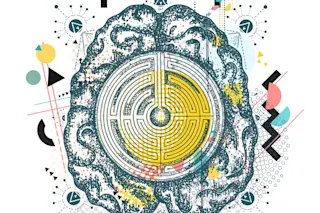For whatever reason, at some point or another, you may have decided to say the same word over and over again. It might have been the word strange. That’s strange. Strange. Sssttt-Rrraaa-Nnn-Ggg-Eee. After repeating the word a few times it started to lose it’s meaning. Experientially, it just became an abstract sound.
While this may have felt like a sort of cognitive processing glitch, some scientists, such as cognitive neuroscientist David Huber from the University of Massachusetts, believe this experience gives us an important insight into how our minds perceive the external world.
Psychologists have been aware of this bizarre effect since way back in 1907, when it was first described by The American Journal of Psychology. However, it took until the 1960’s before someone decided to study it seriously. Leon James, a professor of psychology at the University of Hawaii, made it the subject of his doctoral thesis, coining ...















